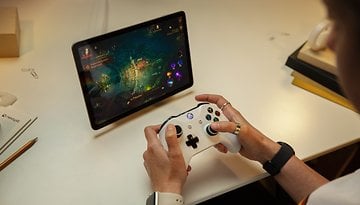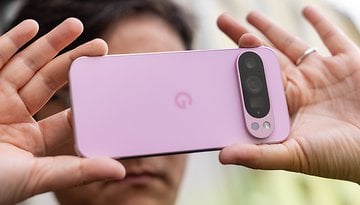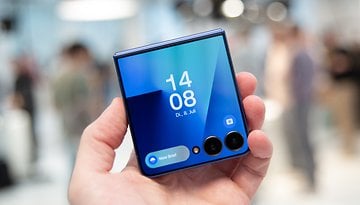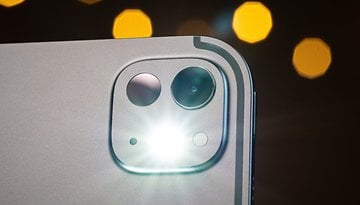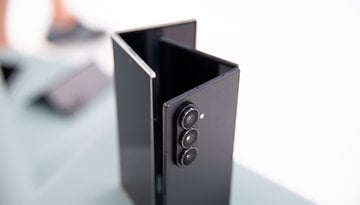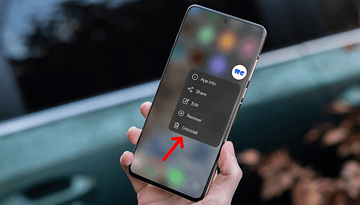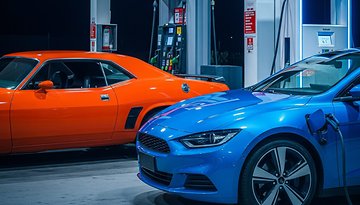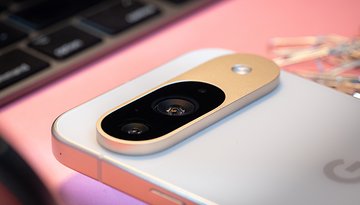EXCLUSIVE: Realme aims to be one of the Big Five manufacturers by 2021
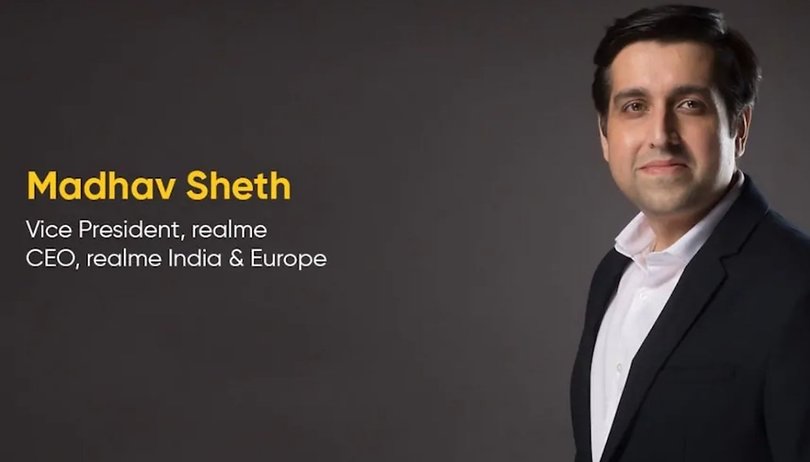

In an exclusive interview with NextPit, Realme Europe CEO Madhav Sheth shed light on the company's strategy to dominate the smartphone market in Europe.
"We aim to break into the top 5 by the end of 2021." The co-founder of Realme alongside Sky Li in 2018 was also the head of operations in India and, more recently, in Europe. He definitely has no doubt whatsoever about the upcoming success of his brand on the Old Continent.
At his age, he is no doubt young for a CEO and is surprisingly tongue-in-cheek. Madhav Sheth struck me as the kind of big boss who never has enough time but still somehow manages to carve out just the right amount of time to attend to important matters. He is cut from the same cloth as someone who juggles between international flights and fifteen daily conference calls and yet always has the door open to meet up with you.
It is rare enough to be the tip of the spear of the world's seventh-largest smartphone manufacturer, where they managed to shift 15 million units worldwide in the second half of the pandemic-stricken 2020, not to mention a projection of 50 million units sold worldwide by the end of 2020. And it is even rarer to have an opportunity to talk to him in such a direct, straightforward, and uncomplicated manner.
Realme has big plans for Europe, and aims to use this to springboard itself right into the Big Five of global smartphone manufacturers, placing it alongside luminaries such as Samsung, Huawei, Apple, Xiaomi, and BBK. Madhav Sheth is not shy to keep that ambition a secret.
"I would love to see myself compete with Apple."
Realme doesn't want to settle for making a big splash in France or even in Europe. In fact, while the brand wants to be seen in every corner, it does not expect this road to be an easy one. "We're going to take it step-by-step." Europe, or 'pan-Europe' as Realme calls it, happens to be a key market.
France happens to be one of the checkpoints alongside Spain and Germany, where Realme decided to set up one of its headquarters earlier this year. This is one step towards establishing a lasting presence on the rest of the continent and "bridging that gap between consumer and product." Despite such looming ambitions, Madhav Sheth remains realistic about their goals.
"I'd love to see myself compete with Apple, but we're not there yet. At this point, anyone who sells products in our segments is a competitor."
The manager believes that his products will be able to make the difference, differentiating Realme from other manufacturers.
Madhav Sheth refuses to reveal anything more, although personally, I can see what the brand intends to achieve and more importantly, what are some of the possible reasons that he has up his sleeves. Bearing in mind that these are simply my speculations, let us dive deeper into this exclusive interview.
Heading up-market without increasing the price
Whether you're a tech journalist, a reviewer or a consumer, what strikes you most about Realme is the number of products that the company has launched ever since it came into existence. Realme relied on a marketing strategy that can be equated to "carpet bombing", the company offers a smartphone at an interval of every €50 within the €100 and €600 price bracket. This particular strategy has proven to be a huge success, with figures that back up the move.
However, Madhav Sheth wants to do more than just flood the market with handsets. He wants Realme to become an indispensable part of the consumer technology landscape while making sure that his products stand out. "Realme wants to become a brand that has something for everybody." Basically, from the entry-level to mid-range and flagship market segments, Realme is here to stay.
In order to achieve this, the manufacturer obviously needs to build on the user experience provided by its new Realme UI 2.0 interface as well as the design of its smartphones. However, there is also an idea to make its catalog more identifiable with people: "In the past, product launches were simply too irregular," concedes Madhav Sheth.
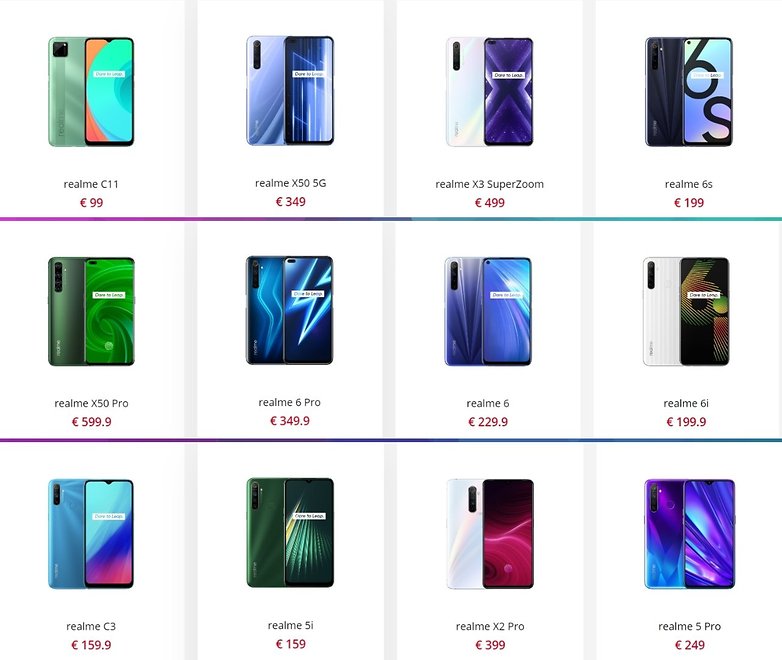
"From now on, we're going to do things in a more synchronized manner, beginning with the Realme 7 and Realme 7 Pro". The latest Realme 7 and 7 Pro models were supposed to mark a revival - a shift in the manufacturer's strategy.
"So we're going to reduce the number of smartphones launched each year compared to previous years. Maybe two or three a year, that's the maximum we'll do. But making sure those two or three ranges of smartphones have the widest impact on users."
Madhav promises that this catalog reshuffle will not result in a price increase, as we've seen with Xiaomi or OnePlus. "The idea is to cover the same price range as before, with simply fewer models. And especially models that pack in far more functionality and features."
"How?" you ask. "We will be offering more storage and RAM options so there will be several variations of each model in order to provide consumers with more options in terms of price structure. We are also going to try to provide all-in-one smartphones that perform in every way possible at a price that actually won't turn away potential buyers."
Aiming for value-for-money than aggressive pricing
Madhav's foray into delivering value-for-money propositions was what laid the foundations of Realme's success in India. One would have thought that he would build on this heritage as well as experience in a region that is known to be very price-sensitive, in order to stand out in France.
But according to him, there is no difference between India and France. "We all speak the same language, that of tech. You simply want your camera to perform, whether it's for photography, or for the processor to work, or when it comes to fast charging."
"It is the same for every consumer, whether they are in France or India or anywhere else in the world. The expectations of a product will always be higher, we will always want more and it is that need, that desire, that Realme wants to fulfill."
"The only difference," concedes the executive, "is the average selling price" which is much higher in France than it is in India. But, as explained above, "we want to ensure that every consumer gets a value-for-money proposition, be it from €99 to €799. This is so that when someone who buys one of our smartphones at €99, he or she will feel just as privileged as someone who picks up the €799 model. The goal is to give people more than what they expected from the product."
"So the goal is not to offer the cheapest smartphone possible, but the one that will be the most beneficial to you and one that suits your budget." Madhav Sheth evokes the "sunk cost feeling", that feeling of losing money after buying a smartphone, that irrational fear that our precious device will lose its value.
"I've read a lot about a psychological phenomenon called the 'better than average effect'. If we apply it to smartphones, it's the feeling that we experience as our smartphone has to be better than others."
This effect is defined as a cognitive bias that consists of overestimating one's abilities, or those of one's smartphone in this case, while considering them as superior compared to others. And it is this constant need, the need to feel like you have a better smartphone than the others, that Realme wants to respond to.
Factors that will convert one's allegiance to Realme
We've talked a lot about smartphones since the beginning of this article, and I will devote the rest of this article to Realme's "ecosystem" strategy - the famous 1+4+N strategy as well as the "Dare to Leap" campaign which was launched this summer.
Like almost every other smartphone manufacturer out there, Realme is launching into all kinds of sub-products but will pay special attention to those that connect to its smartphones. The brand is still in its infancy on the IoT (Internet of Things) market, but sees this as a baby step.
"Is this a necessary step? I would say yes, but it all depends on the timing. These are complementary products and the point is to cross-sell through our smartphones. Again, the idea is to provide people more and more choices."
"One of our users, who has already tested out one of our smartphones, is going to want to continue the Realme experience with a pair of headphones, a speaker, or any other product that we intend to launch down the road. I think it makes sense for us to jump into this growing segment right now."
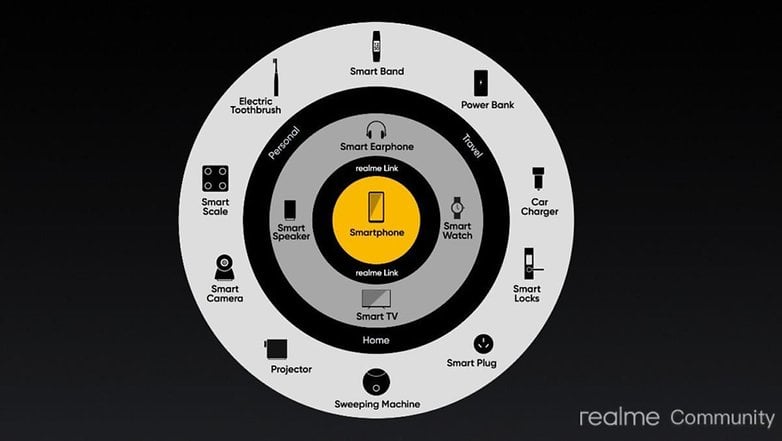
But how do you convince users, who essentially know you for your smartphones, to dive headfirst into your ecosystem and adopt all your products in a sustainable manner? This is where Realme's "Dare to Leap" campaign comes in.
A campaign which we can all relate to as it appeals to tribal marketing. I did share about this idea in an article about "fanboyism" and its roots. Tribal marketing is the use of social behavior of certain groups of consumers (tribes) in order to promote a product or service.
At the heart of the matter, it is simply the idea of funneling an existing group of customers who do not share common interests into an area or situation where they do. This is a phenomenon that is specific to the web and social networks, where it enables those who are on the fringes of a connected population to find a common interest. This particular niche will bring them together around values based on their socio-cultural, ethnic, geographical, linguistic, religious, and even sex or gender preferences.
Why did I bother with sharing my thoughts in those few paragraphs? That is because it is precisely the very same bet that Realme is trying to make with its "Dare to Leap" campaign, by democratizing all of its products, and not only its smartphones.
Dare to Leap, or "dare to cross barriers" is a campaign that clearly targets young people. The promotional video shown during Realme's keynote at the IFA 2020 was almost like a Nike ad. It depicted young and beautiful people, each in their own way and portrayed in an inclusive manner accompanied by epic music, inspiring quotes that were eloquently stated in a deep and solemn voice, all against a backdrop of sports and urban culture.
"Dare to be a rebel, an outsider. Dare to step out of line" were some phrases that enticed viewers to take the leap. Realme is no doubt a supporter of you jumping into the unknown, by presenting a picture of a blue pill and a red pill that was made famous in The Matrix. References to geek culture and language in which the young speak are keys that will unlock this market. Both Honor and OnePlus have done it in the past, and who are we to say that doing the same this time around will fail for Realme?
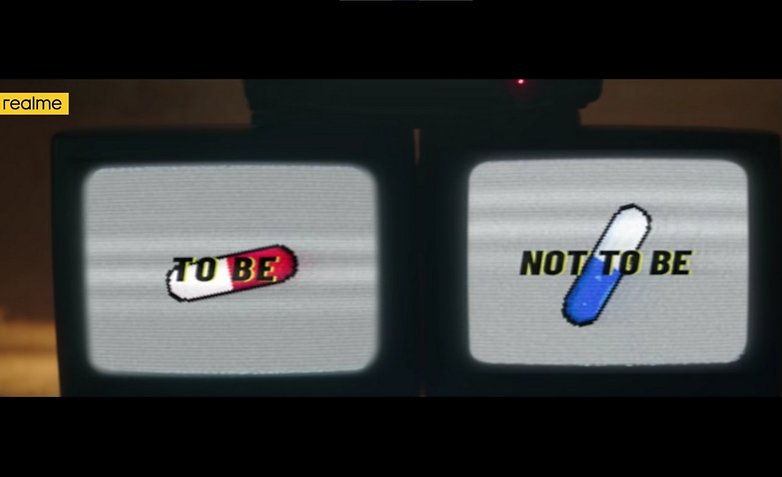
But, to my surprise, Realme isn't really a brand for Zoomers, as Madhav Sheth explained to me.
"Who's the decision-maker in your house when it comes to buying tech products? Who are your friends and family talking to?" asked Madhav, who probably is not aware that I'm probably charging a lot of money for my purchasing advice and recommendations to those around me. "If someone among your friends or family wants to buy a tech product, they will come to you for advice. You're the influencer in your social circle."
"We want to make sure that the influencer in every family or circle understands Realme and that he or she is imbued with the brand in order to eventually influence [and thus convert] his or her loved ones. It all starts with one person, the influencer, who has to be convinced."
By talking to young people using their lingua franca, they may be the agents to whisper the Realme name into their parents' ears, in order to be on the receiving end of one of these cool smartphones. And it would be those very same parents, while learning about the brand (perhaps for the very first time), who might end up with a Realme catalog and discover that there is a wide range of connected objects worth checking out.
A smart toothbrush for dad, a connected bracelet for mom, and connected security cameras or a connected alarm for the entire house, who knows? "Remind me again honey, weren't we here to buy a smartphone in the first place?" might be a phrase that will occur time and again in the near future should Realme's strategy pan out well. Madhav Sheth's unexpected answer to my initial question immediately seemed to have a far more logical conclusion.
See you again in a year
Dare to Leap, all right. But Realme's strategy in Europe is anything but a leap of faith into the unknown. The builder and its architect in Europe, Madhav Sheth, has carved a well-thought-out plan of attack.
"Realme has only been in existence for two years, where do you see yourself in the next two years?" I asked Madhav, proudly presenting my last question after having spent the previous day preparing for this interview, and bringing it to a conclusion.
"I can't project what will happen two years from now - this industry is moving too fast and is too agile for an accurate prediction. Everything depends on innovation, it is a constant that keeps you on course and encourages you to keep up with users' ever-increasing expectations of brands. I do not think that they really know what they want from more than one product unless you show it to them, and surprise them with that level of innovation. Once it is adopted, they'll never want to turn back."
"But within a year, I see us break into the top five manufacturers in Europe, that's for sure. Maybe in two years' time, we'll meet again to talk about it," Madhav tells me with a confident smile.
The gauntlet has been thrown, and our appointment has been all but confirmed. See you in two years, Madhav!






